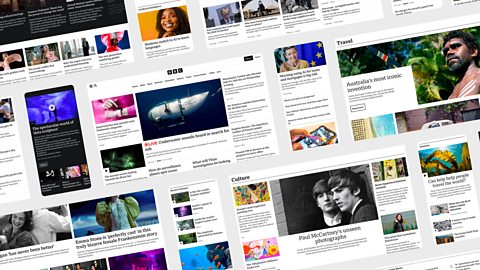News Websites Things To Know Before You Get This
News Websites Things To Know Before You Get This
Blog Article
An Unbiased View of News Websites
Table of ContentsThe 9-Minute Rule for News WebsitesWhat Does News Websites Mean?Not known Details About News Websites The Single Strategy To Use For News WebsitesA Biased View of News Websites
It was down in the UK and Brazil however up some other countries, such as Greece, Bulgaria, and Poland (News Websites). This year, for the very first time, we asked concerning the various manner ins which people avoid the information and located that around half of avoiders (53%) were trying to do so in a broad-brush or routine way for instance, by transforming off the radio when the news began, or by scrolling past the news in social media sitese.g. scrolling past news, changing channels when news begins. of avoiders inspect sources much less often. e.g. limitation to certain times of day, switching off notifications, etc. of avoiders prevent some subjects. e.g. topics that lower mood or increase anxiety. You claimed that you attempt to proactively stay clear of information.

I'm most likely picking to learn more light-hearted stories than I used to currently. M, 51, UK Switching my back on information is the only means I feel I can cope occasionally. I need to consciously make the effort to transform away for the benefit of my very own psychological health and wellness.
The Ultimate Guide To News Websites
Selective evasion of Ukraine news was highest possible in much of the countries closest to the conflict, reinforcing findings from our extra study last year, not long after the war had actually begun. Our data might not recommend a lack of rate of interest in Ukraine from neighboring nations yet rather a need to take care of time or shield psychological wellness from the extremely genuine scaries of battle.
Contrasting Finland with a politically polarised nation such as the USA (see following chart) that is less influenced by the war, we discover a very different pattern of subject evasion. In the USA, we discover that consumers are extra likely to stay clear of subjects such as national politics and social justice, where discussions over concerns such as gender, sexuality, and race have become highly politicised.
American national politics are rather hazardous these days. I find often that I need to separate from stories that simply make me upset. my company F, 61, USA For some individuals, bitter and divisive political discussions are a reason to shut off news altogether, but also for some political partisans, evasion is usually about obstructing out viewpoints you do not intend to hear.

All about News Websites
Some are seeking to make news much more obtainable for hard-to-reach teams, widening the information agenda, appointing even more motivating or favorable news, or embracing constructive or options journalism that give individuals a feeling of hope or personal agency. In our survey this year, we asked participants regarding their rate of interest in these different approaches.
This clarifies why stories like Ukraine or nationwide politics carry out well with news regulars yet can at the same time turn much less interested individuals away (News Websites). Discerning avoiders are much less thinking about all kinds of news than non-avoiders but in family member terms they do seem to be extra interested in favorable or solutions-based information

Unknown Facts About News Websites
2023). This may be real in the minute, however with time it seems to be leaving lots of people empty and less completely satisfied, which may be undermining our link with and rely on the information. Across markets, general rely on news (40%) and trust in the sources individuals utilize themselves (46%) are down by an even more 2 percentage factors this year.
Through the rear-view mirror, the COVID-19 trust bump is plainly noticeable in see here the complying with chart, though the direction of travel afterwards has actually been mixed. Sometimes (e.g. Finland), the count on increase has been preserved, while in others the upturn looks even more like a spot in a tale of continued long-term decrease.
A few of the greatest reported degrees of media objection websites are found in countries with highest degree of distrust, such as Greece, the Philippines, the USA, France, and the United Kingdom. The least expensive degrees of media objection are frequently in those with greater degrees of trust fund, such as Finland, Norway, Denmark, and Japan.
Not known Details About News Websites
This year we asked respondents regarding their preferences for text, audio and video clip when consuming information online. Typically, we find that the majority still choose to read the news (57%), instead of watch (30%) or listen to it (13%), but more youthful individuals (under-35s) are more likely to listen (17%) than older groups.
Behind the standards we locate considerable and surprising nation differences. In markets with a solid analysis practice, such as Finland and the United Kingdom, around 8 in 10 still choose to review on-line information, yet in India and Thailand, around four in ten (40%) state they choose to watch news online, and in the Philippines that proportion mores than fifty percent (52%).
Report this page